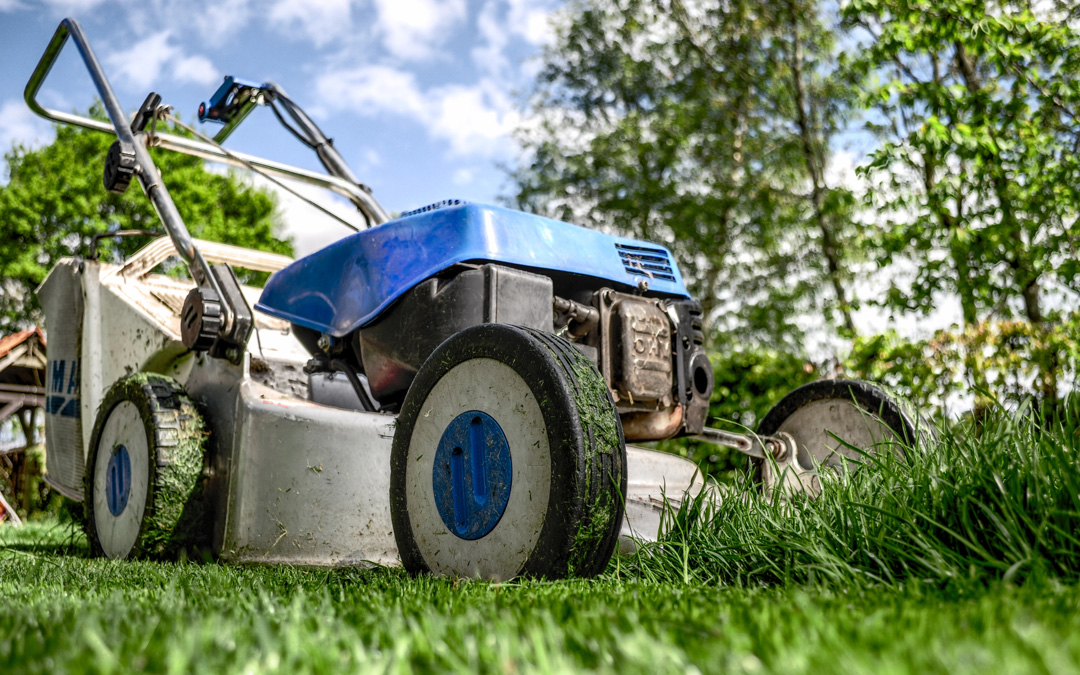The humble lawnmower

The arrival of the 2 new ride-on battery mowers for Banyule City Council’s Parks staff to use prompted me to revisit an article I wrote last year. The article was about petrol-driven mowers contributing to climate change and local pollution of various kinds. Council’s use of battery mowers supports its carbon-neutral objectives and reduces running costs compared to diesel machines.
Noise pollution from mowers can be a serious issue. Even more serious is the air pollution that comes from a fossil-fuel-burning piece of equipment. Despite their small size, lawnmowers produce a great deal of harmful and carcinogenic emissions such as carbon monoxide, carbon dioxide, volatile organic compounds and nitrogen oxides. Carbon dioxide is a familiar contributor to climate change. Mowers also produce methane, which adds significantly to global warming.
Mowers are also major contributors to local pollution, through the production of pollutants including carbon monoxide (CO) and NOx (nitrous oxides). Both are directly harmful to health, and the NOx mixes with other chemicals in the air to form acid rain, which is destructive to waterways, trees and other vegetation.
The small size of mowers can make them seem relatively harmless, which is not at all the case. In fact, compared to vehicles they present an even greater problem. Unlike modern vehicles, they lack emission-reducing equipment, such as catalytic converters. Tests conducted at the University of Newcastle with commonly used lawnmowers, showed they contribute 5.2% carbon monoxide (CO) and 11.6% of non-methane hydrocarbons (NMHC) as a proportion of transport emissions in the Newcastle region.
Of course, there are other garden tools using petrol, including line trimmers (whipper snippers), chain saws and leaf blowers. In California, the Air Resources Board issued a 2020 report showing that emissions from this equipment were higher than emissions from California’s 14.4 million cars.
This massive contribution by lawnmowers and other garden equipment to local pollution is clearly a cause for concern. Fortunately, there are straightforward answers to the problem.
Electric and battery garden equipment has developed to the point where it can replace petrol-driven machines. The advantages of using this equipment go well beyond the reduction of pollution.
Battery-driven machines are lighter than their fossil-fuel equivalents. They are easier to use, making them ideal for non-professionals such as us. They are also far quieter – and at the Sustainable Macleod Community Garden, they can be used without disturbing other people working there.
Battery machines also get rid of the need to buy, transport, store and mix fuel. The non-petrol machines at the community garden can be recharged from the off-grid solar power – a real win-win.
Sustainable Macleod has an extensive tool library of battery-driven garden tools, including a hedge trimmer, leaf blower and whipper snipper, as well as battery secateurs and branch loppers.
To replace the generously donated, but old and difficult-to-start petrol mower, Sustainable Macleod received a grant last year from Banyule City Council for a battery-operated mower. This is being used to manage the grass immediately outside the garden fence and to shred green waste. To deal with branches pruned from the fruit trees, the grant application included a powerful electric chipper, running directly off the solar off-grid power. Both are a tremendous asset for the garden.
Since Sustainable Macleod’s mission is to help in the transition to sustainable ways of living, the move away from fossil-fuel equipment must be encouraged. Recognising the impact that the humble lawnmower has on the environment, it is clear we need to replace old petrol machinery as soon as possible.
Of course, there is another alternative – converting our lawns to garden – a topic I’ll look at next month.
Written by Paul Gale-Baker
References
Emissions from in-use lawn-mowers in Australia: M.W. Priest a, D.J. Williams b, H.A. Bridgman
Emissions from petrol mowers: The toxic monster hiding in your shed
Written by Paul Gale-Baker
